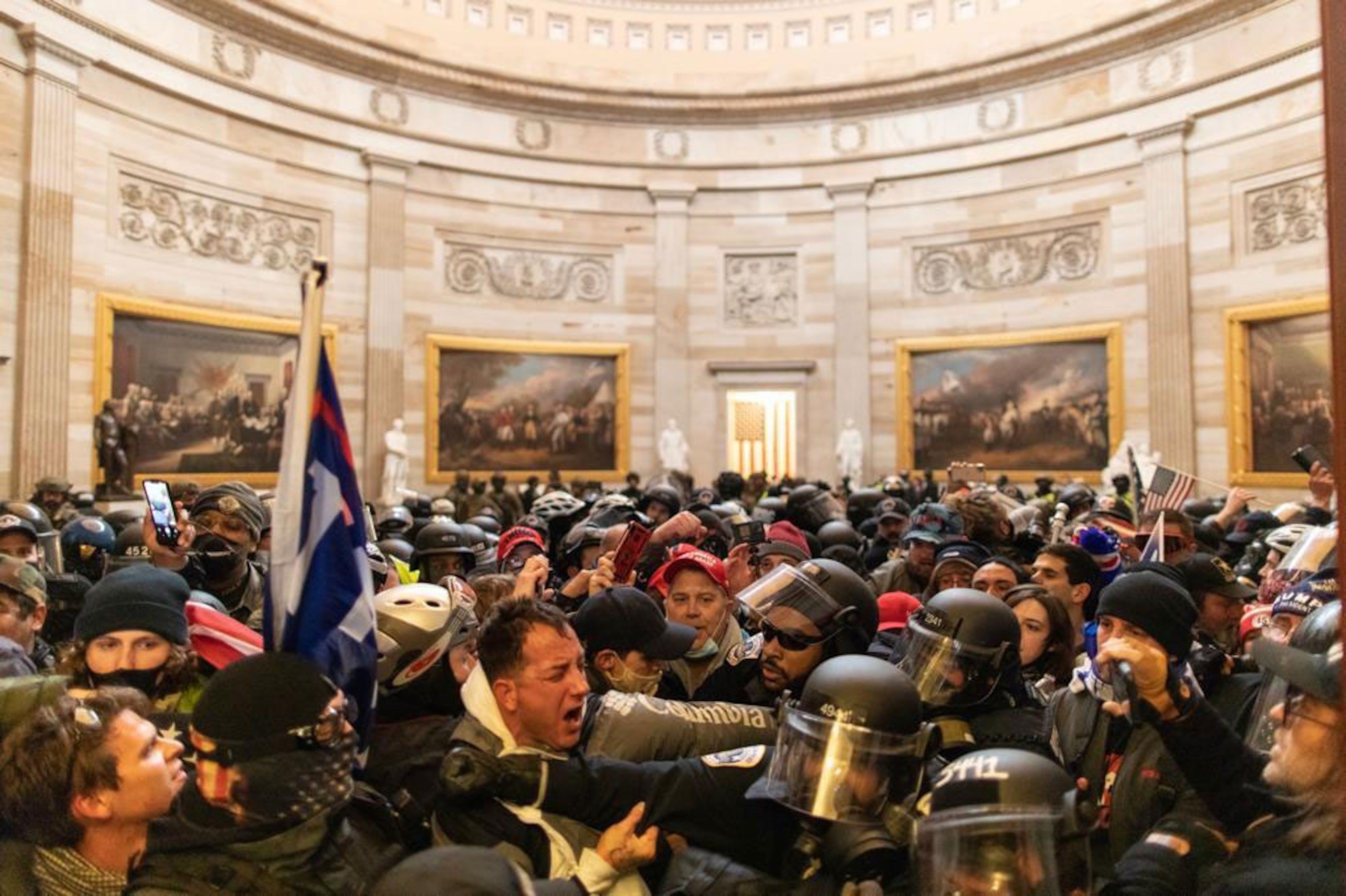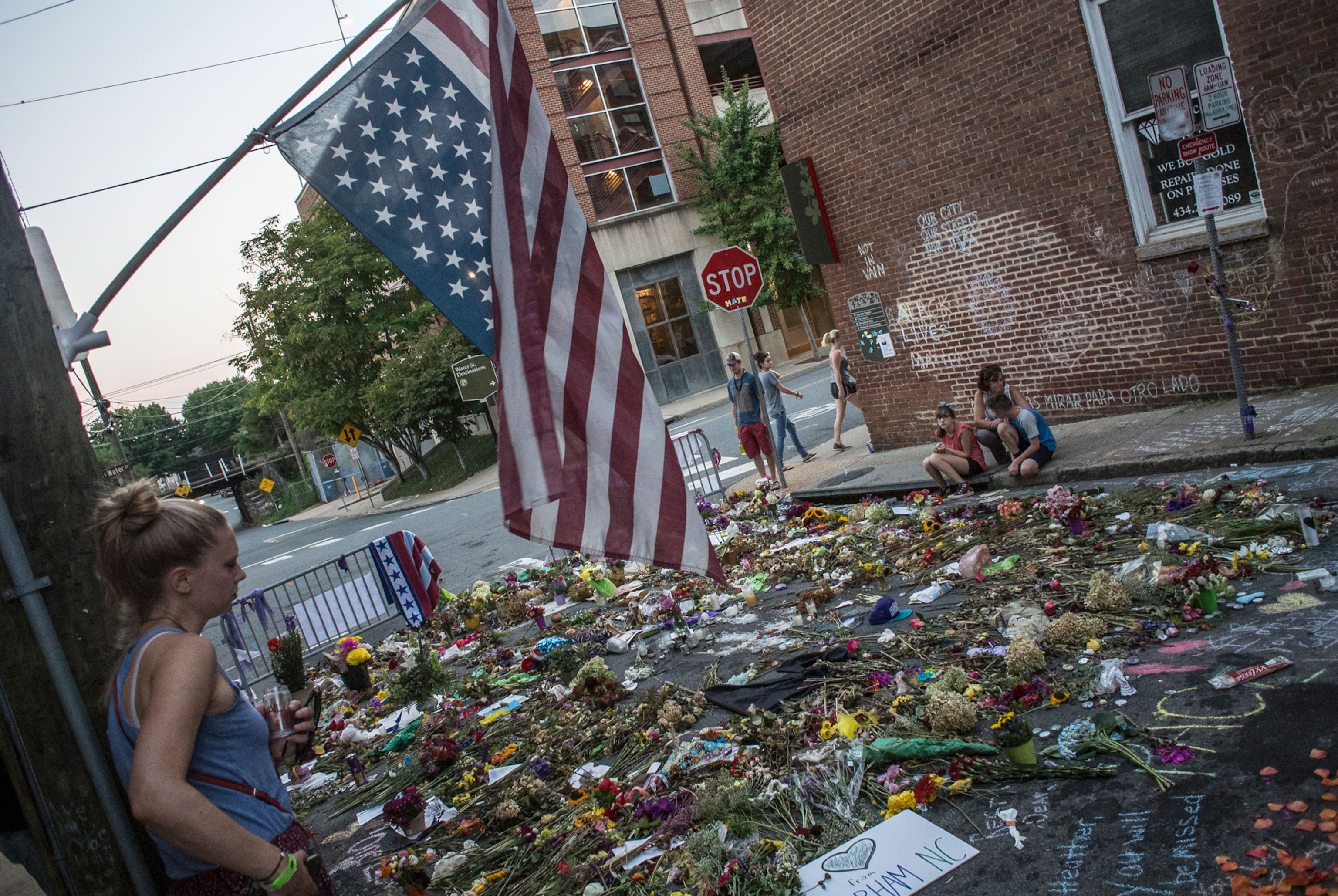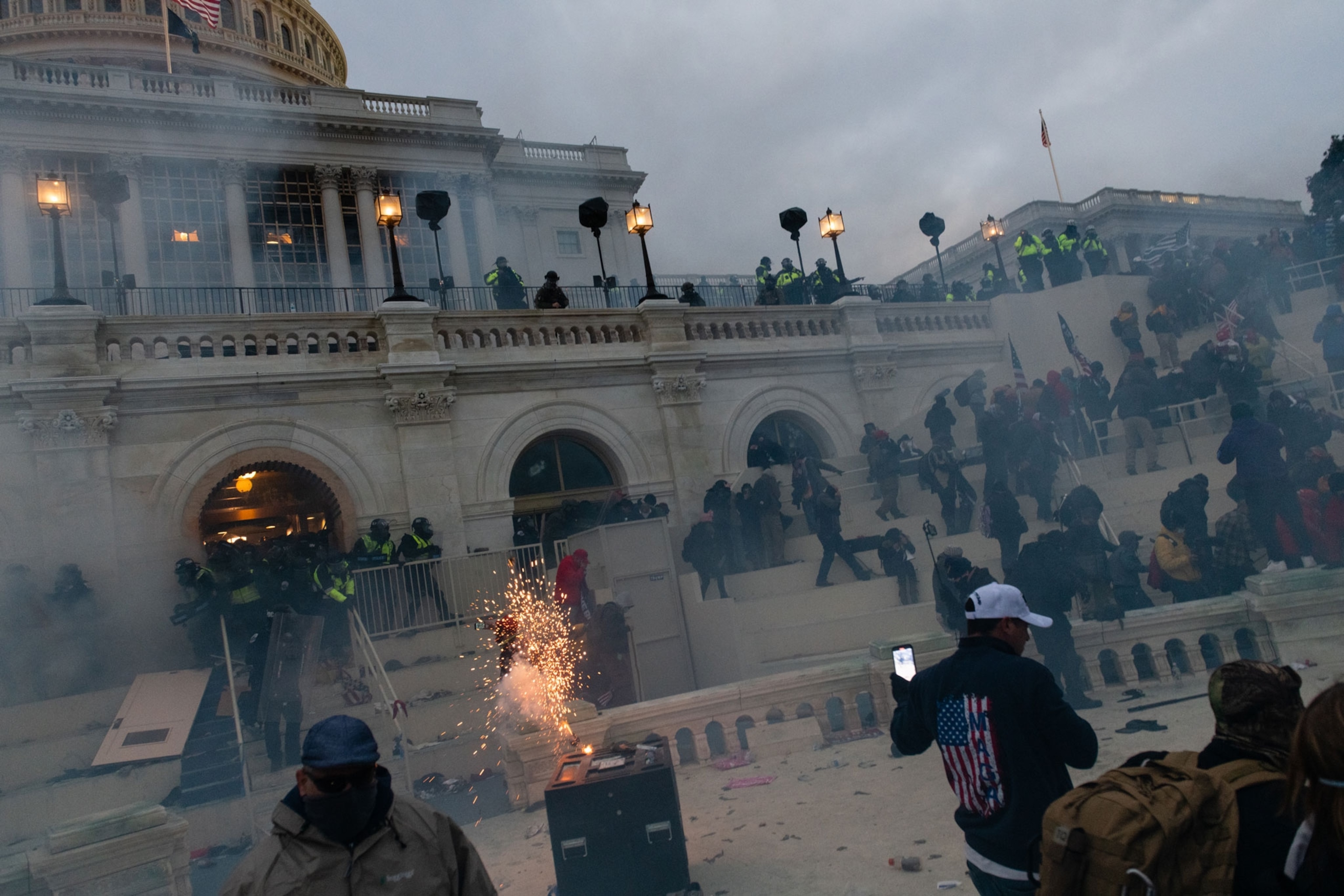
Why comparing the Capitol insurrection to ‘third-world countries’ ignores U.S history
A veteran Middle East reporter reflects on the events of January 6th, as seen from Beirut.
As a Middle East-based journalist with some two decades of experience covering political and social unrest, wars, and conflict—including the 2011 Arab uprisings—the scenes of violence I watched unfold in America’s capital on January 6 from my home in Beirut, Lebanon were not completely unfamiliar to me. But here’s what was unfamiliar: For the nth time since the November election, U.S. president Donald Trump, the so-called “leader of the free world,” lied and demonstrated his unwillingness to accept the results of the ballot box in the world’s self-declared beacon of democracy. In other places where protesters rebel, storm, and vandalize state property, their governance systems and leaders aren’t generally regarded—either by themselves or by others—as beacons of democracy.
American television pundits and journalists covering Wednesday’s events looked overseas for answers, blame, or perhaps even solace, claiming that what transpired in Washington was indigenous to “third-world countries” and citing as examples such places as Benghazi, Baghdad, Beirut, and Bogota (all places, incidentally, where the U.S. is actively trying to shape the political dynamics).
Some pundits suggested that, like a contagious virus, the conspiracy-fueled political chaos in Washington somehow had been imported to America’s shores, but they failed to examine America’s own complicated history—even just the events of the past year—for the possible causes.
These were some of the same pundits who expressed their shock and surprise at the president’s actions and their consequences.

As if armed protesters hadn’t invaded Michigan’s State Capitol in April 2020 after Trump tweeted “Liberate Michigan!” in response to the Democratic governor’s coronavirus measures, an incursion that now looks like a test run of Wednesday’s actions in Washington.
As if Trump didn’t tell the right-wing Proud Boys to “stand back and stand by” during the heated 2020 election campaign.
As if the president didn’t refuse to condemn 17-year-old Trump supporter Kyle Rittenhouse’s killing of two Black Lives Matter (BLM) protesters and the wounding of a third in Wisconsin.
As if Trump didn’t say back in 2017 that there were “very fine people on both sides” of a violent Charlottesville rally that included tiki torch-carrying white supremacists.
Across my social media feeds, fellow journalists and observers in the Middle East and elsewhere expressed similar reactions to seeing white rioters blithely and freely walking out of the Capitol building (not a single one in handcuffs) after storming it: What if those rioters were Black, or Muslim, or Arab, or Latino?
America’s double standards were on stark display to the world, and not for the first time. We saw the massive shows of force displayed in America’s streets against BLM protesters last summer, in clear contrast to the minimal resistance faced by armed white protesters who turned up at various state capitols over the same period. We watched news reports about Black people being shot dead for traffic violations, for looking suspicious in a hoodie, or for jogging, while some white people could storm the Capitol and have their “pain” recognized by a president who said he loves them. Trump didn’t create America’s unequal racial socio-economic system or the divisions that are corroding a global superpower. He merely harnessed, exploited, and enhanced them for his own personal benefit and in so doing, brought them into sharp, unfiltered focus for all the world to see.


The myths America tells itself sometimes don’t make it across the oceans and seas that separate it from the rest of the world that it considers itself an exception to. The same America that ostensibly supports democracy promotion overseas has, in longstanding bipartisan policy, backed dictators in the Middle East as long as those dictators assist U.S. policy objectives. Even Iraq’s Saddam Hussein was a valued American ally from 1980-88 when he fought Iran in a brutal war that left hundreds of thousands dead, only falling out of favor when he invaded Kuwait, a U.S. ally, in 1990.
Now, after four years of Trump, that disconnect between American myth and reality has also become clearer in the country’s domestic politics. An America that speaks of human rights and occupying a moral high ground is the same America that separated migrant children from their families, caged them, and then lost track of who some of them were and where they were.
Of course, there are many Americans opposed to such policies. Those in power don’t always reflect the views and values of much of the citizenry or the political class, whether in Washington, Benghazi, Baghdad, Beirut, or Bogota.
In a brief and somber message as the attack on the Capitol unfolded, President-Elect Joe Biden stressed that the rampaging rioters “do not reflect a true America” and “do not represent who we are. What we’re seeing is a small number of extremists dedicated to lawlessness.”
The fact is, it is often a “small number of extremists dedicated to lawlessness” who tar the whole and expose a deeper shame. Despite that, Muslim travel bans, U.S. sanctions, and other punitive measures are applied collectively, with hurtful generalizations slapped on entire groups of people and places.
Cities like Benghazi, Baghdad, Beirut, and Bogota are too often tarnished and defined by their darkest moments, their names synonymous with a single event or period. Should Washington, D.C., now be added to that list? Should the full course of America’s democratic history be demeaned because of a single assault on the Capitol? Should all white Americans be considered rioters because of the actions of a few, and made to apologize for the actions of their fellow white Americans? Of course not. Such narrow generalizations are the enemy of nuanced understanding and are simply unfair.
Still, Trump’s four years in power have laid bare the corrosiveness and tribalism of American party politics that appear as entrenched and rigid and destructive as those of any Middle Eastern sectarian political party. Trump and his backers have exposed the frailty of America’s democratic institutions and shown democracy isn’t merely an ideal to be taken for granted, but a practice that must be renewed, defended and protected.
Global leaders used the same kind of language to condemn events in the United States that America often uses to chide so-called “third-world countries” about implementing peaceful and orderly transitions of power. Turkey engaged in what can perhaps be considered peak trolling, saying it was "following developments in the U.S. with concern," while warning Turkish citizens in the country to avoid crowds.

Germany’s Angela Merkel, meanwhile, reminded the U.S. that “a basic rule of democracy is that after elections there are winners and losers,” while her foreign minister said that “insurgent words turn into violent acts.” These are basic ideas that the U.S. shouldn’t need to be lectured about.
On January 6, America’s “citadel of liberty,” as Biden put it, was breached within hours, a security failure with far-reaching consequences and one that rioters cloaked in the language of upholding and protecting democracy. Their actions were goaded and fueled by the falsehoods of a president determined to cling to power at any cost. Lies have consequences for Americans at home and abroad. America went to war in Iraq based on the lie of weapons of mass destruction. America’s democracy is under threat based on the lie of a stolen election.
There are other claims, too, that should be honestly examined in the wake of this grave threat to American democracy, like the claim that Trump is an aberration and not also a reflection of America. His 74,222,958 votes—more than any other presidential candidate with the exception of Biden—also represent a huge swath of America. Trump and his supporters can’t be wished away with emotional appeals to what (some in) America think the country is. Nor can Wednesday’s events be blamed on behavior foreign to the U.S. political system or imported from overseas.
What kind of an America will emerge from this period? Who will be held accountable for what happened, not just on January 6, but in the years leading up to it? Will the ideal and promise of America match its reality, at home and abroad? Whatever happens, the world is watching.